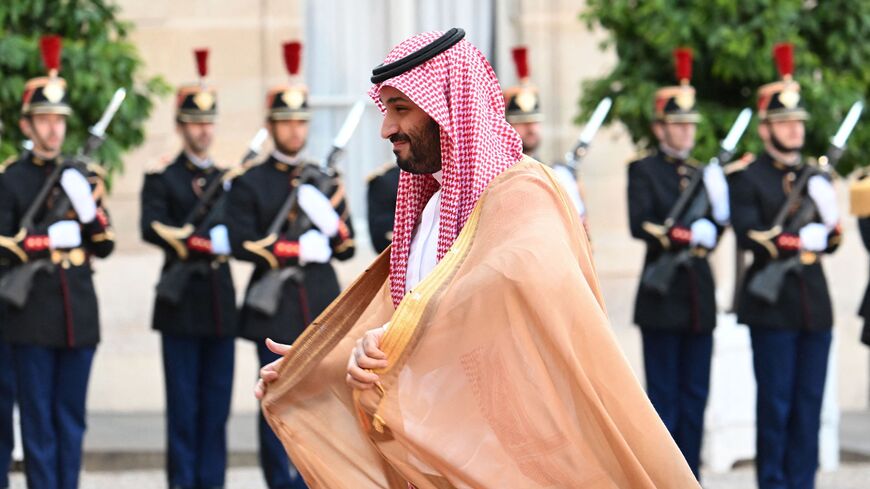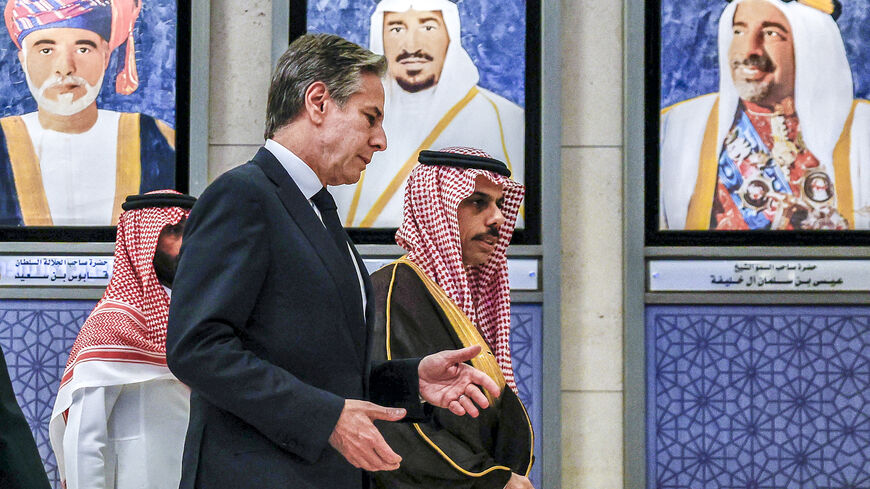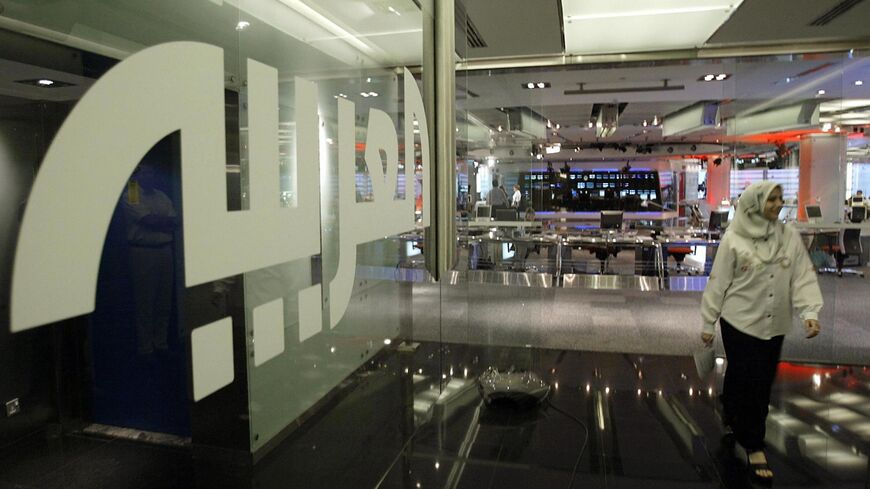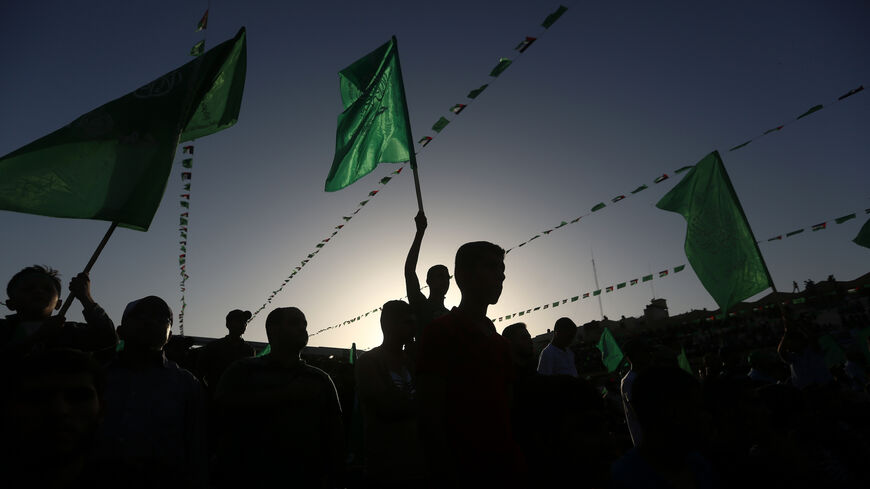Saudi Arabia says no relations with Israel before recognition of Palestinian state on 1967 borders
The Saudi remarks came after a US official said normalization discussions between Israel and Saudi Arabia were moving forward.
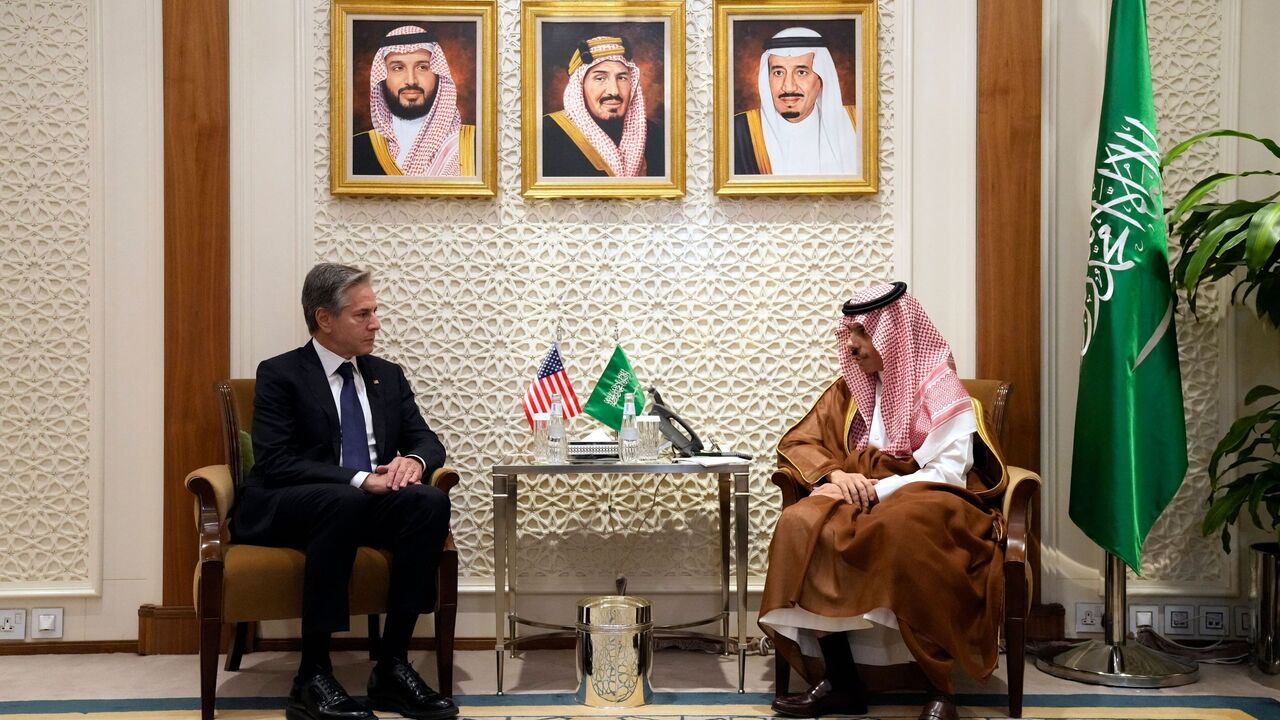
Saudi Arabia clapped back at the United States’ claims that discussions on a Saudi-Israeli normalization deal were moving forward separately from talks on a Gaza cease-fire.
In a statement released early Wednesday, the Saudi Foreign Ministry said the kingdom has informed Washington that it will have no diplomatic relations with Israel until an independent Palestinian state is established on the 1967 borders with east Jerusalem as its capital and Israel ends its offensive on the Gaza Strip and withdraws its troops from the enclave.
“Saudi Arabia has always been steadfast on the Palestinian issue and the necessity that the brotherly Palestinian people obtain their legitimate rights,” the statement added.
The statement further called on the UN Security Council to expedite the recognition of the Palestinian state “so that the Palestinian people can obtain their legitimate rights and so that a comprehensive and just peace is achieved for all.”
The Saudi statement came hours after White House National Security Council coordinator John Kirby claimed that the US administration had received “positive feedback” that Saudi Arabia and Israel are willing to continue normalization discussions.
Kirby was speaking at a press briefing late on Tuesday. When asked whether securing a hostage deal between Hamas and Israel and a normalization agreement between Saudi Arabia and Israel are part of the same US efforts, the US official said the two issues were separate things.
“We’re working very hard … to try to come to closure on another hostage deal and an extended pause that will allow us to get the remaining hostages home with their families, to get more assistance in [Gaza] and certainly to reduce harm to civilians,” Kirby said.
“At the same time, we were before the 7th of October and are still now having discussions with our counterparts in the region, Israel and Saudi Arabia — obviously, the two key ones — about trying to move forward with a normalization arrangement between Israel and Saudi Arabia,” he added.
Normalization talks face setback
Before the Israel-Hamas war erupted on Oct. 7, Washington had been pushing to bring Saudi Arabia into the 2020 Abraham Accords, under which the United Arab Emirates and Bahrain normalized relations with Israel.
Last September, Saudi Crown Prince Mohammed bin Salman said that his country and Israel were getting closer to normalization.
But after Hamas launched its cross-border assault on southern Israel, prompting a brutal Israeli military response in the Gaza Strip, Saudi Arabia reportedly paused discussions on a deal with Israel. Since then, Saudi officials have stressed the need to achieve Israeli-Palestinian peace and secure the rights of Palestinians before moving forward with any normalization deal.
For his part, Israel’s president said that normalization would be a key element to ending the war with Hamas. Speaking at the World Economic Forum in Davos in mid-January, Herzog added that such a deal represents “an opportunity to move forward in the world and the region toward a better future.”
However, Prime Minister Benjamin Netanyahu reportedly rejected a US proposal to achieve normalization with Saudi Arabia in exchange for Palestinian statehood. Citing three unnamed senior US officials, NBC News reported last month that Netanyahu told Secretary of State Antony Blinken during a visit to Israel that “he’s not prepared to make a deal that allows for a Palestinian state.”
More than 27,585 Palestinians, mostly women and children, have been killed in the Israeli air and ground campaign on Gaza, according to the Hamas-run Health Ministry. The Israeli military has vowed to continue its war until all of Hamas is eliminated and all hostages taken by the movement during its cross-border assault return home.
Hamas militants killed around 1,200 people and took over 240 other hostages when it launched its unprecedented attack in southern Israel Oct. 7. A total of 110 hostages were freed during a brief seven-day truce in late November, while Israel released 240 Palestinian prisoners. Since then, the United States along with Egypt and Qatar have been working to secure another exchange deal between Israel and Hamas.
Meanwhile, Blinken met with bin Salman in Riyadh earlier this week as part of a Mideast tour. The two officials discussed the latest developments in the region, including in the Gaza Strip and Red Sea, where the Iran-backed Houthis have stepped up their attacks on commercial vessels.
According to a State Department readout, Blinken and the de facto Saudi leader agreed on the need to end the war in Gaza through regional coordination in order to achieve lasting peace for both Israel and Palestinians.
Blinken arrived in Israel on Wednesday following stops in Saudi Arabia, Egypt and Qatar.

